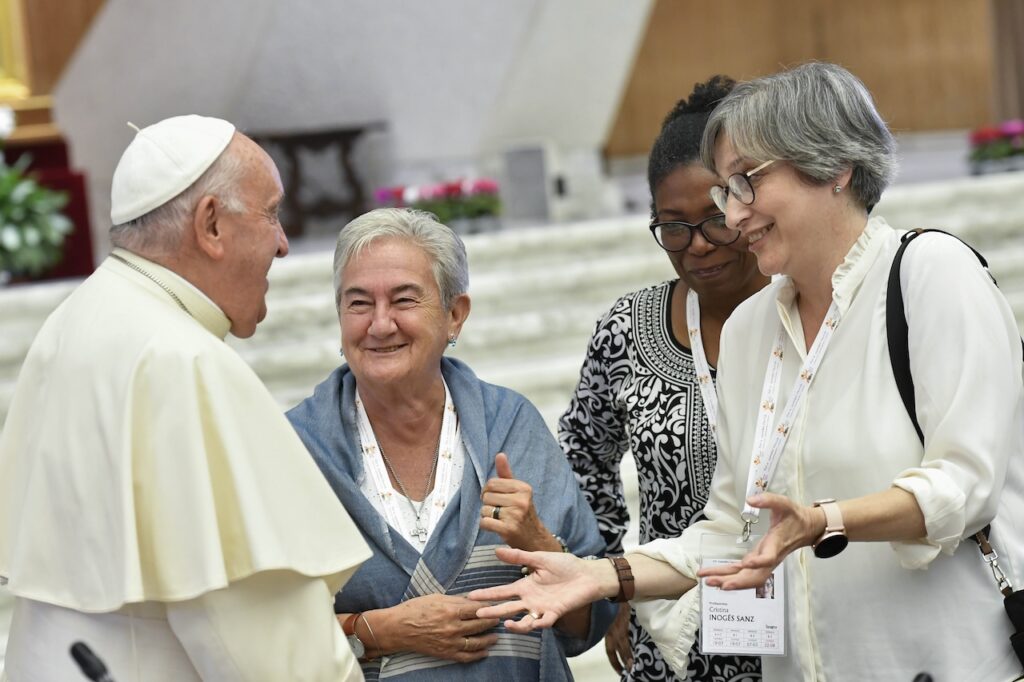VATICAN CITY (CNS) — International Women’s Day has long been an occasion for women and men connected to the Vatican to gather to discuss the role of women in the Church and society.
But with the full participation of women at the synod on synodality and the assembly’s reflection on the dignity and responsibility of all the baptized, many of the questions raised this year were more focused than in the past and it was clear that the “women’s” issues were not set aside just for that one special day.
The two major events taking place in Rome for the March 8, 2024, celebration of International Women’s Day were a daylong conference on “women leaders” sponsored by the British and Australian embassies to the Holy See and Caritas Internationalis and a two-day conference on women as “builders of humanity” hosted by the Pontifical University of the Holy Cross and co-sponsored by several pontifical universities.
Pope Francis met March 7 with people participating in the universities’ conference and sent a brief message to the embassies’ March 6 conference, praying that it would “bear fruit in an ever-greater commitment on the part of all, in the Church and across the world, to promote respect for the equal and complementary dignity of women and men.”
The discussions at the conferences ranged from the example of women saints to ways women, lay and religious, are promoting development, dignity and inclusion among women in Africa, Latin America and Asia.
Chiara Porro, the Australian ambassador to the Holy See, began her introductory remarks by paying “homage to those who have opened pathways before us, those who paved the way by championing values, many of which we now take for granted.”
“I think sharing our experiences and elevating the voices of women is so critical, and having women as role models is as well as,” she told Catholic News Service March 6.
The conference on women leaders, sponsored by Caritas and the embassies, included a healthy dose of theological reflection.
Xavière Missionary Sister Nathalie Becquart, undersecretary of the Synod of Bishops, said the whole process of the synod on synodality — from local listening sessions to the synodal assemblies last October and this coming October — has been “a process to give more voice to women.”
“The synod is trying to highlight and foster this vision of the Church as a Church of brothers and sisters in Christ with this new ecclesial style of listening, dialogue and encounter and really insisting on a key word, which is inclusion, because it’s about participation of all,” she said.
The synod process, Sister Becquart said, also made clear that just as all the male participants did not have the same position on key issues, neither do the women, but they do want to be heard.
The same goes for women in religious orders, said Loreto Sister Patricia Murray, executive secretary of the International Union of Superiors General. “We care about the Church and its mission. We want to bring our experiences, insights and perspectives to shaping the mission of Christ in the world.”
“We have welcomed the appointment of women, both religious and lay, to positions within Vatican dicasteries, knowing that they bring with them a diversity of perspectives and experiences,” she said.

